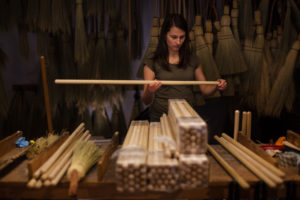Leaving school and getting your career underway can be daunting. Everyone is talking about their plans for university, for study, to travel, to work, and you’re feeling just a little lost. Here’s my six tips to get you back on track and be more confident as you get your career underway.
1. Work to get your career started

Here’s a big shout out to retail. Many retail employers offer extended career development opportunities.
Check out Woolworths, who offer on the job training, in-house training programs to leadership levels, apprenticeships, and specialist fast track programs. http://www.wowcareers.com.au/
Bunnings Careers webpage talks about wanting their staff to “reach their full potential” and the company offers online learning programs, management programs, and leadership training. That would make a great start.
Check it out at: www.bunningscareers.com.au/
One more from retail and fast food this time: McDonalds. They offer some structured pathways from Crew to Management. McDonalds training is (generally) very well regarded by industry so this could make a great start. Check it out at: https://mcdonalds.com.au/learn/careers
That’s a few ideas out of retail and really just the tip of the iceberg.
Tip1: get started with some work as a Christmas casual. Positions are advertised from August onward.
Tip2: you’ll need to know how to develop a resume and how to apply for jobs.
Here’s one of the best places for young people that I know of: Youth Central -http://www.youthcentral.vic.gov.au/
2. Add in some skills
Practical skills training, Vocational Education and Training (VET), offered through training providers such as TAFE. VET courses have an emphasis on developing skills that are required for employment. There’s a huge range of options from Warehousing to Nursing, from Landscaping to Business. The course offerings differ from College to College so check out your local TAFENSW website for options. For Western Sydney, go to WSITAFE website: https://wsi.tafensw.edu.au/
The website is set up for easy access to information. Plus, TAFE colleges have some really good Career Services on site if you’re not sure what to study.
Tip: there’s a lot to take in when considering VET courses. WSITAFE has information sessions for many of their courses. Make the time to get to one of these to make sure you’re on the right pathway.

3. Other training providers
Many other colleges also offer VET courses. Some have been around for a long time; some colleges are newer to the training market. You should thoroughly research any course and training provider you are considering (that goes for TAFE and uni options too). You’ll find this website very useful in navigating the maze of training providers: www.myskills.gov.au
My Skills website is the national directory of vocational education and training (VET) organisations and courses. It is a federal government initiative to enable consumers to search for, and compare, VET courses and training providers.
The website also gives information on industries, training news, training stories, lets you know which jobs are in demand, and student outcomes, i.e. courses that led to employment. Plus, lots more. A very valuable resource.
4. Apprenticeships and traineeships
Combine on the job learning with VET studies and you have the apprenticeship and traineeship models of work.
There are so many opportunities offered through apprenticeships and traineeships; these links will get you thinking about some of these great pathways.
SkillsOne – an online skills community that brings careers to life through short video presentations from people who work in the industry. Lots of practical and interesting advice. www.skillsone.com.au
Australian Apprenticeships website will get you started with your learning about apprenticeships and traineeships.
https://www.australianapprenticeships.gov.au/
5. Good news for future study

Studying at university may seem a long way off today, but somewhere in the future it may be something you are ready to do. The good news is that any VET courses you complete, and work experience that you gain can open doors to university. Some unis offer articulation (a fancy word for credit) for VET courses in related areas of study. Discuss the options with university admissions advisors.
Some of these articulations that are well established include:Studies in Children’s Services at diploma level or above may gain you credit for Early Childhood courses at some universities.
VET Business studies at diploma level or higher are recognised by some universities and give credit for first year subjects.
The other good news is that universities have direct entry pathways to many of their courses for mature aged students. In most cases, mature aged means over 20 or 21.
One more piece of good news, universities have their own pathways that offer to help students meet entry standards and criteria.
Universities are keen to talk about the options, so when you’re ready, jump online and start the conversation.
I completed my two university degrees as a mature aged student – it’s worked out well for me.

6. Take your time
It takes time to refine and redirect your career to bring you reward and satisfaction. Take time to work out your options. Researchers have repeatedly found that having a formal base of skills will bring greater reward in the longer term. Spend time thinking things through, talk to people you trust. My article, ‘What do you want to be when you grow up?’ will get you started. Get advice and support from people you can trust.
Over to you.
Pamela

Comments are closed.